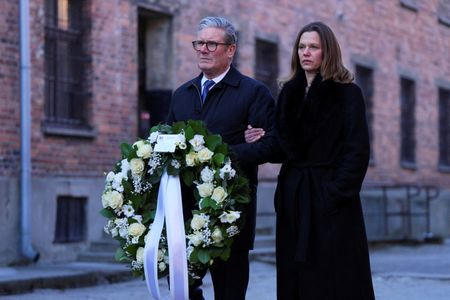By Susanna Twidale
LONDON (Reuters) – Britain will give 100 million pounds ($135 million) of support to France’s EDF to help it build the Sizewell C nuclear plant in Suffolk, England and encourage new investors in the project, the government said on Thursday.
Britain aims to reach net zero emissions by 2050, which will require a huge increase in low-carbon power generation such as wind, solar and nuclear, but new nuclear projects have struggled to secure funding due to the large up-front costs.
If built, Sizewell C would be able to produce 3.2 gigawatts (GW) of electricity or enough to power around 6 million homes.
The support also comes amid record global gas prices which have driven up the cost of electricity across Europe, with a price cap on most of Britain’s domestic power prices expected to rise by around 50% from April.
“In light of high global gas prices, we need to ensure Britain’s future energy supply is bolstered by reliable, affordable, low carbon power that is generated in this country,” Business and Energy Secretary, Kwasi Kwarteng said in a statement from the Department for Business, Energy and Industrial Strategy (BEIS).
BEIS said the funding would be reimbursed either in the form of cash or an equity stake if the project reaches a financial investment decision (FID). It would also seek to recoup the investment if FID is not reached, it added.
China’s CGN has a 20% stake in the development phase of Sizewell C, and is also backing EDF in building Britain’s first new nuclear plant in more than two decades, Hinkley Point C.
Some politicians have expressed concerns about China’s involvement in Britain’s nuclear industry and the government last year put forward a regulated asset-based (RAB) funding model it hopes will entice different backers to new nuclear projects.
“No decisions, including on the final configuration of Sizewell C’s investors, have been made,” the statement said.
Under RAB, companies building new plants would be paid during the construction phase, cutting their development risk and allowing them to secure cheaper financing for the projects.
The model would also require that households pay a small amount each month for new plants while they are still being constructed.
($1 = 0.7403 pounds)
(Reporting By Susanna Twidale; Editing by Kirsten Donovan)











